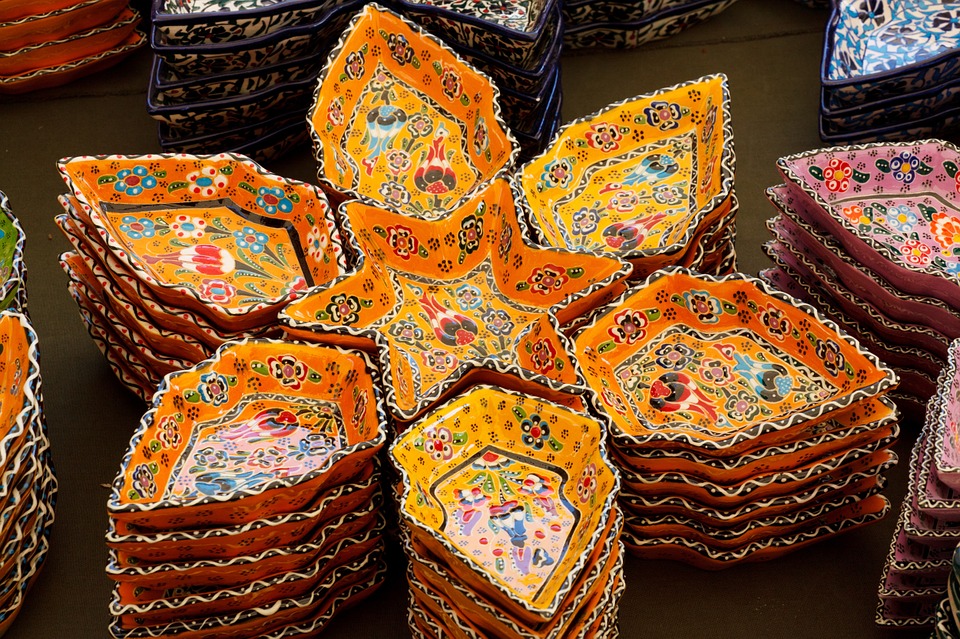
You’ve just taken a vacation that you’ll never forget, so it only makes sense to mark the occasion with a souvenir that will remind you of your getaway forever.
The only problem? You’re an eco-conscious traveler and shopper, so you want it to be both special and sustainable. It might seem an impossible task, but there are plenty of things you can buy that won’t harm the earth — and won’t look too shabby in your home, either.
Here are some ideas of what to buy — and one of what not to buy — on your next holiday.
Artisan Goods
You can probably easily distinguish between a tourist-trap souvenir shop and a local artisan’s shop. Choose option two and you’re likely to find something inside that’s totally unique — a piece of pottery or jewelry, or a tapestry that speaks to the region’s culture.
When buying handmade products from a small business owner, you’ll be funneling money back into the local economy and keeping these entrepreneurs afloat. Many souvenirs that come from more tourist-focused souvenir shops use plastic and other unsustainable materials. Plus, they are often made in factories and shipped in, so the money you spend won’t do much to help the local community.
Local Foods

You might want to consider an edible souvenir from an authentic confectioner, baker or wine connoisseur. Of course, this is a bit more of an ephemeral souvenir, and you will need to check your home country’s customs policies, but it’s something you’ll certainly enjoy once you get home.
You can do one better by finding local eateries that rely on locally sourced ingredients — often times, this information will be clearly printed on the menu.
Stamps
Remember those funny squares you used to stick on envelopes to contact people? Collecting stamps is a totally sustainable way of souvenir-ing because the stamps have already been produced: you’re just buying something special and unique that’s already out there, putting it in a collection, and using it to represent a life’s worth of unforgettable trips around the world.
Well-Sourced Tees
We’ve already mentioned the importance of avoiding tourist-trap souvenir shops, where most of the inventory is shipped in from other countries where production is bigger and much, much cheaper. Many souvenir t-shirts fall under this umbrella, too.
If you really want to pick up a wearable souvenir, though — and think you’ll really wear it instead of chucking it or giving it away — try and find one made of organic cotton or another well-sourced material. Bonus points if you can find one made by a local tailor.
Second-Hand Goods
People love antiques because they have a story to tell. Souvenir buyers love them because they are so unique and will be a great conversation starter once displayed in the home. Eco-friendly souvenir buyers love them because they’ve been around for a while will stick around for years to come — no need to worry about unsustainable materials when you buy something from before the onset of industrial mass production.
Of course, antiques might not be in the budget, so eco-friendly travelers can try their luck at flea markets and second-hand shops where the goods are gently used and discounted. You’re likely to find something incredibly special, whether it’s wearable or decorative. Either way, you’ll have a story to tell each time you put your second-hand souvenir on display — and you’ll be recycling in a stylish way.
Say “No” to Animal Products
Finally, it’s important to note this category as one to avoid. Exotic vacations will introduce you to products made from animal skins, shells, horns, and other animal products. It’s advisable to avoid these types of products, as it is rare they were collected sustainably or humanely.
The biggest offender is ivory, which poachers gather horns and tusks after killing animals – usually rhinoceroses or elephants, both of which are on the verge of extinction. You should also always avoid anything made of tiger or sea-turtle shell, as the majority of sea turtle species are endangered as well. Some products, such as snakeskin or crocodile-skin, can be sustainably produced, although you should ask to see a permit before you purchase.
Off You Go
With this information in mind, it should be easy to narrow down your potential list of purchases on your next holiday. Despite the short length of this list, you won’t be wanting for choice when you hit the shops; in fact, the thrill of the search for the perfect eco-friendly souvenir might be just as special as finding it, displaying it and enjoying it for a long, long time.
Kacey is a lifestyle blogger for The Drifter Collective, an eclectic lifestyle blog that expresses various forms of style through the influence of culture and the world around us.
Read Ethical Traveler's Reprint Policy.
